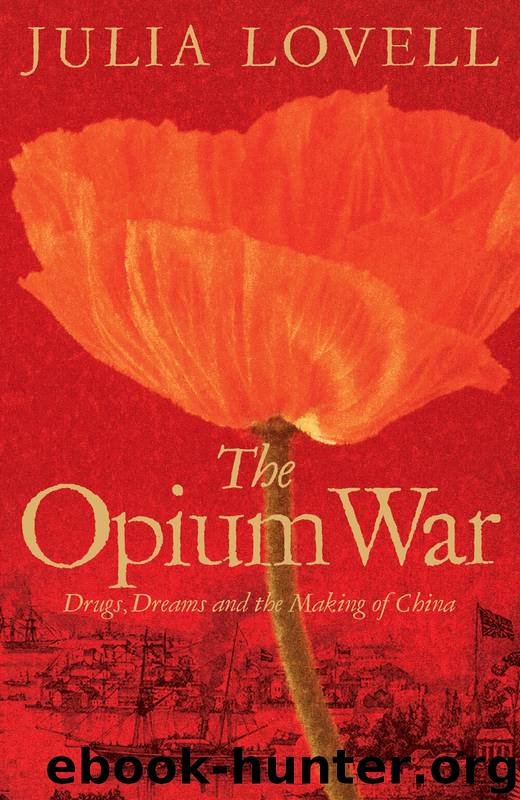The Opium War by Julia Lovell

Author:Julia Lovell
Language: eng
Format: epub, mobi
ISBN: 9781447204107
Publisher: Picador
Chapter Fourteen
THE TREATY OF NANJING
In April 1842, a seventy-one-year-old Manchu called Yilibu received some terrible news. His distant relative, the emperor, had revoked his sentence of banishment to the Great Wall fortress town of Zhangjiakou and decided to post him to beautiful Zhejiang. In the normal run of things, such a change of fortune – a transfer from the bleak Sino-Mongolian frontier to the balmy south-east – would have been cause for rejoicing. Not in 1842, though. Yilibu was old and ill, weakened by his military exile in the north. He had already suffered enough for this war: in the summer of 1841, he had spent two painful months on trial in Beijing, for his handling of the British occupation of Zhoushan through the winter of 1840.
On 3 April, he was summoned to the Yuanmingyuan (the Summer Palace) for an audience with the emperor. This was an opportunity for the emperor to interrogate in person someone with first-hand experience of the British about their motives, their ambitions, their strengths and weaknesses. (Every other minister who had served in the war had either not been allowed to return to Beijing, or had done so in disgrace.) Two and a half years after this war was supposed to have started, Daoguang found himself still lacking the most basic information about his antagonists: where in fact, he wondered in a communication of May 1842, is England? Why are the English selling us opium? What are the Indians doing in their army? How is it they have a twenty-two-year-old woman for a queen? Is she married? Has Elliot really gone home?1 Yilibu was ready for Daoguang’s questions: he planned, he told one of his aides that day, to make a detailed report about what he knew of handling the British. But as soon as Yilibu had announced his arrival, for unexplained reasons Daoguang changed his mind – he would not see his elderly kinsman after all. Yilibu was allowed to kowtow to the gate of the Second Palace, then on 15 April permitted to leave for Zhejiang through the Gate of Upright Openness, in the southern stretch of the city wall.
Daoguang had wasted his best chance to hear a frank account of the British and the war. From here on, it would be business as usual, with his ‘slaves’ obfuscating and lying as hard as they could, at a safe remove from their sovereign, to bring this border disturbance to an end.
Download
This site does not store any files on its server. We only index and link to content provided by other sites. Please contact the content providers to delete copyright contents if any and email us, we'll remove relevant links or contents immediately.
| Africa | Americas |
| Arctic & Antarctica | Asia |
| Australia & Oceania | Europe |
| Middle East | Russia |
| United States | World |
| Ancient Civilizations | Military |
| Historical Study & Educational Resources |
The Alienist by Caleb Carr(1808)
The Analects of Confucius by Burton Watson(1434)
On China by Henry Kissinger(1375)
China in Ten Words by Yu Hua(1217)
The Last Kings of Shanghai by Jonathan Kaufman(1214)
One Bright Moon by Andrew Kwong(1204)
The Snakehead: An Epic Tale of the Chinatown Underworld and the American Dream by Patrick Radden Keefe(1105)
Deng Xiaoping and the Transformation of China by Vogel Ezra F(1032)
Mao's Last Dancer by Li Cunxin(1030)
Three Tigers, One Mountain by Michael Booth(1017)
Seven Years in Tibet by Heinrich Harrer(1008)
Midnight in Peking by Paul French(968)
Big Sister, Little Sister, Red Sister by Jung Chang(955)
Tiger Trap by David Wise(921)
Ancient Chinese Warfare by Ralph D. Sawyer(859)
China Men by Maxine Hong Kingston(853)
Modern China. A Very Short Introduction by Rana Mitter(839)
The Open Road by Pico Iyer(807)
Riding the Iron Rooster by Paul Theroux(801)
